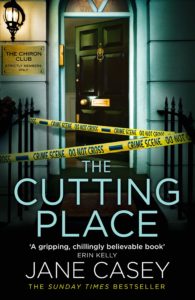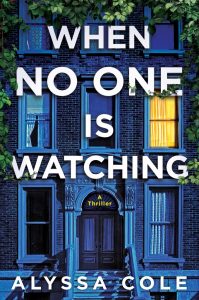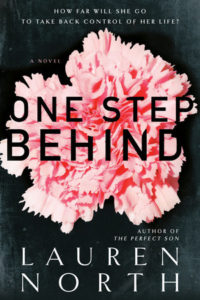Readers, let’s be frank—or, more accurately, let me be frank. We are living in uncertain times. Things we took for granted are being taken away from us: travel, school, work. And if they are not completely out of reach they are curtailed, or present in a new form which requires acclimatizing. As most of us are more comfortable with habit than with novelty, this uncertainty shrouds us like a weighted blanket.
In ruminating on this, ultimately I confronted a simple question, the same question I ask myself every month when I collect my thoughts and write this column. Why read crime fiction now? Would fairy tales—or fantasy, which is fairy tales for adults—be more appropriate? Is it time to dig deep and take up Henry James or Tolstoy or Proust, authors who understood the upheavals of history and shifts in the social order? Yes and no. I believe in the power of books and authors that have endured, but I also believe that crime fiction is a way to look critically at society, and that this subgenre of domestic suspense or psychological thrillers often comments on key issues of power (Who has it? How are they wielding it?) and knowledge (What do I know, and how? Who can I trust?). These parenthetical questions are frameworks not only for crime fiction but for life, people: big change is the result of uncertain times. Until we know more, let’s read.
Jane Casey, The Cutting Place (HarperCollins)
Jane Casey’s DS Maeve Kerrigan books are both lively and thoughtful. I cited a scene Casey wrote in a past novel where Kerrigan was cornered by men in the stairway of a housing estate as a moment of rape culture infiltrating ordinary life. Casey has created an engaging protagonist in Kerrigan: a good cop who wants to be a great one, she’s a working-class child of Irish immigrants replete with red hair and freckles. She’s outspoken and ethical In The Cutting Place, and Kerrigan is assigned a case which shows her how the other (rich) half lives. A journalist who was investigating a private club— the kind where you can’t apply, you have to be invited—is murdered. The Chiron Club contains the wealthiest and most ruthless men in London and they are anxious to thwart the investigation into their private doings. Meanwhile, Kerrigan is also harboring secrets, and her time is not on her side.
Alyssa Cole, When No One Is Watching (William Morrow)
Cole is best known as a romance writer, but she’s been transitioning over to thrillers with a soupçon of romance. Her latest, When No One Was Watching, is a chronicle of Brooklyn gentrification (has anywhere else ever had such a well-documented gentrification?). Native Sydney Green is watching her neighborhood get invaded by condos and condo-sized strollers (I made that second part up, but it’s true). When she finds herself getting involved with one of her new neighbors, a man named Theo, Sydney is suddenly stricken with panic and paranoia. Can she trust this newcomer? Does he have good intensions for the neighborhood and for Sydney, or is he playing a game she does not know?
Avery Bishop, Girl Gone Mad (Lake Union)
I have a weakness for books about psychoanalysis and talk therapy, a hangover from a period of intense study of Freud and his disciples. When it’s done well it’s an excellent premise for crime fiction, as therapy is a process of excavating the past and revealing our deepest fears and secrets. In Girl Gone Mad (a future entry in the Disambiguation Project), Emily Bennett is a therapist in Pennsylvania who works with troubled children. She had some troubles in her own childhood: she was part of a clique of mean girls called the Harpies, who are suddenly turning up dead.
Ruth Ware, One by One (Gallery/Scout)
There is a new Ruth Ware this month. It’s her best yet. That’s all you need to know, right?
Lauren North, One Step Behind (Berkley)
Jenna plays many parts: she’s a wife, a mother, a doctor, and the target of a stalker. Her tormentor is not playing: frightening “gifts” are left on her doorstep. Her home is invaded. And she feels eyes on her all the time, especially when she’s with her children. The twist is the stalker shows up in the ER after an accident, and Jenna has to treat him. As he lays in a coma, she begins to investigate the man who has made her life hell. But hell might be where she’s headed if she digs up the wrong thing.






















